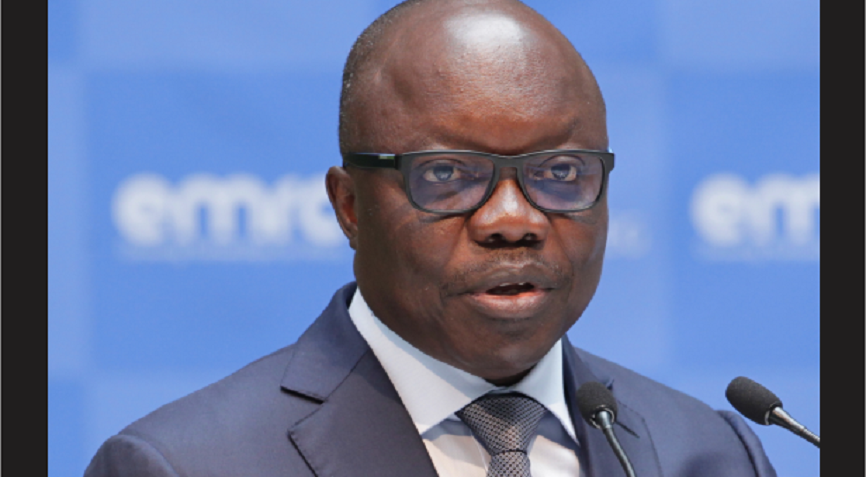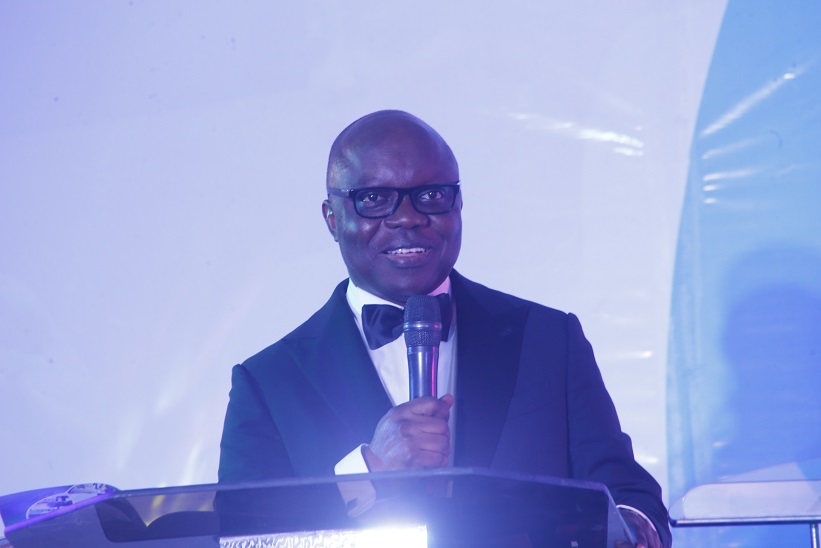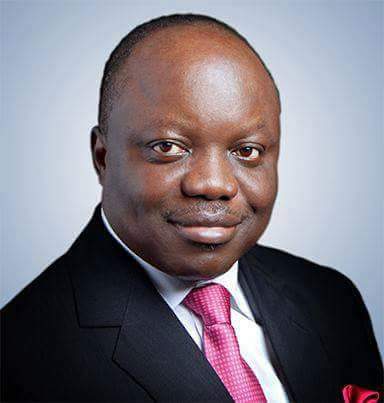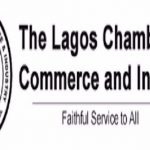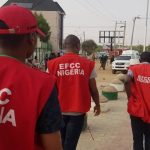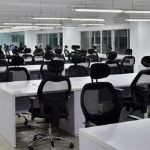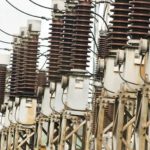Feature/OPED
Emmanuel Uduaghan’s Antidotes on Niger Delta Challenge
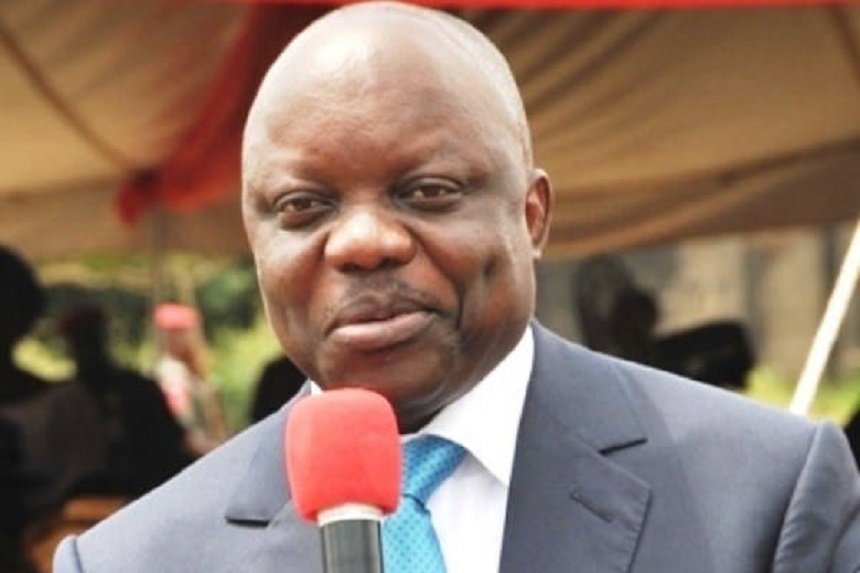
By Jerome-Mario Utomi
In a piece entitled Banters in Lagos, Poverty and Disease in the Niger Delta, posted about four years ago, precisely in February 2018.
Aside from spreading out the needs, interests, aspirations and even their problems were critically reviewed against solution plans and implementation, it among other concerns posited the following comparative scrutiny/conclusions; namely, first, that while the executives of oil companies in Nigeria daily exchange banter/pleasantries in Lagos and Abuja, poverty, disease and illiteracy orchestrated by crude oil exploration and production activities walk the creeks, rivers and estuaries of the Niger Delta.
Secondly and very important, at the same time as the oil giants look into the future with high hopes, the people of the region where the crude oil is domiciled bemoan their fate in their sorrows and their hardship.
Thirdly and most fundamental, that whereas the oil chiefs who are predominantly resident in Lagos/Abuja, daily sing the songs of praise and claims the ‘wisdom of Solomon’, the real owners of the ‘black gold’ in the creeks and coastal areas of Niger Delta, not only study the ‘book of lamentation’ but manifests hopelessness and economic powerlessness as the majority of these organizations operating in their locations neither believe in the principle of ‘equal sorrow’ nor abide by the tenets of the corporate social responsibility (CSR).
The said piece, however, concluded that though faced with interminable socioeconomic and environmental challenges, one thing is sure. Niger Deltans are troubled but not despondent. A situation that makes it easy for them to be managed and contained if only the federal government could come up with a plan and political will to tackle the challenges currently faced by the people of the region.
After about four years of that piece, a thorough examination of a recent keynote speech presented by the immediate past Governor of Delta State, Dr Emmanuel Eweta Uduaghan, on Thursday, October 21, 2021, at the Delta Online Publisher Forum (DOPF) annual lecture held at Banquet Hall, Orchids Hotel, Asaba, Delta State shows that each of them has something in common.
Speaking on the topic Niger Delta Economy; Building a New Face for the Region, the former Governor called on the region handlers to invest more in human capital development programmes/initiatives on prospective youths and women as a way of ensuring sustainable socio-economic development of the region, noting that this can be achieved via fostering of collaboration/inter/intra-regional trades among Niger Delta people as well as diversification of Niger Delta economy.
In his words, Niger Delta is well geographically positioned and endowed with human and natural resources. But we need investments in/for infrastructural development, peace and security.
Human capital, he explained, refers to the economic value of knowledge, experience and skills of a group of people in a state, local government or an entire region as the Niger Delta. There is a strong relationship between human capital and economic growth.
He argued that it is in the interest of each administrative state within the Niger Delta to purposely invest in skills and knowledge through education, competence training and health. Any financial investments made on human capital development do have a direct relationship with the socio-economic growth of the Niger region.
To buttress his claim, the former Delta State Governor added that the Delta State Micro-Credit Programme (DCMP) was a financial empowerment programme, under his administration, aimed at providing interest-free loans and mentorship to prospective and entrepreneurial youth including women in agro-processing, diverse business start-ups, fintech, agriculture and other creative activities. He told the gathering that the initiative produced 21,000 entrepreneurs and artisans in 730 clusters from 25 local governments of the state.
Now, this piece will spread its wings on the particulars adduced by Emmanuel Uduaghan as to why the region urgently needs to wear a new face.
On the urgent need to diversify the Niger Delta economy through the adoption of the mantra ‘Niger Delta Beyond Oil”, Uduaghan stated that 85 per cent of the population, informal enterprises are the primary sources of livelihood, but these are characterized by low productivity and wages.
“Nigeria ranks fourth among cocoa producers in the world, and the Niger Delta region produces 53% of the country’s output. It is an important crop-earning non-oil foreign exchange. Cross River, Ondo and Edo States are leading producers in the Niger Delta region, producing about 97 per cent of the region’s cocoa.
“The major processing for cocoa is in Western Nigeria, around Lagos, so major value addition takes place outside of the Niger Delta region,” he said.
On the way forward, the former governor advised that improving rural competitiveness in non-traditional agricultural products through value-added export could be one major source of economic diversification.
The region he said can readily produce rice, sugar, cocoa, roots and tubers, citrus fruits, plantains, rubber and rubber products
He said something else that has to do with imperatives for economic improvement.
Beginning with biodiversity, the region he said is home to the largest contiguous mangrove forest or wetlands in Africa and the third largest in the world with an extensive freshwater swamp forest and rich biological diversity. This factor makes the region key to agriculture/agro-processing with capacities in areas such as wholesale/retail commerce, manufacturing, aquaculture, transportation, construction and other creative activities.
Away from possession of biodiversity to its geographical and population advantages, Uduaghan observed that the region is bounded by the Atlantic Ocean and blessed with a coastline extending from the mouth of Benin River to the Imo River Estuary and spans about 500km.
He added that over 62% of the region’s population are 30 years or younger and are growing youths. With an estimated population of 31 million, the region accounts for approximately 24% of the total population of Nigeria.
From the above realities, particularly the availability of coastline, it is obvious that the Niger Delta seaports, if developed, are very key infrastructure that will support and facilitate the manufacturing process and business development.
As seaports are globally acknowledged as development agents and growth drivers, it goes without saying that making the existing seaports in the region function in their full operating capacities will only reverse their fortunes as sea-land interface structure but will once again revive the once active but now dying market outpost which the port towns of Warri, Sapele, Burutu, Port Harcourt, Onne and Calabar.
Having said all these, Uduaghan concluded that there is no doubt that for us to build a new face for the Niger Delta region, there has to be an emphasis on activities that will lead to the economic development of the region, and this will require all hands on deck and all brains devoid of insanity coming into.
To catalyse the process, he, therefore, called on the leaders of the region to urgently work in collaboration with the federal government to ensure that there are good road networks connecting states and communities.
I pray that those in the position of authority will listen.
Jerome-Mario Utomi is the Programme Coordinator (Media and Public Policy), Social and Economic Justice Advocacy (SEJA). He writes from Lagos. He can be reached via [email protected] or 08032725374.
Feature/OPED
Directing the Dual Workforce in the Age of AI Agents
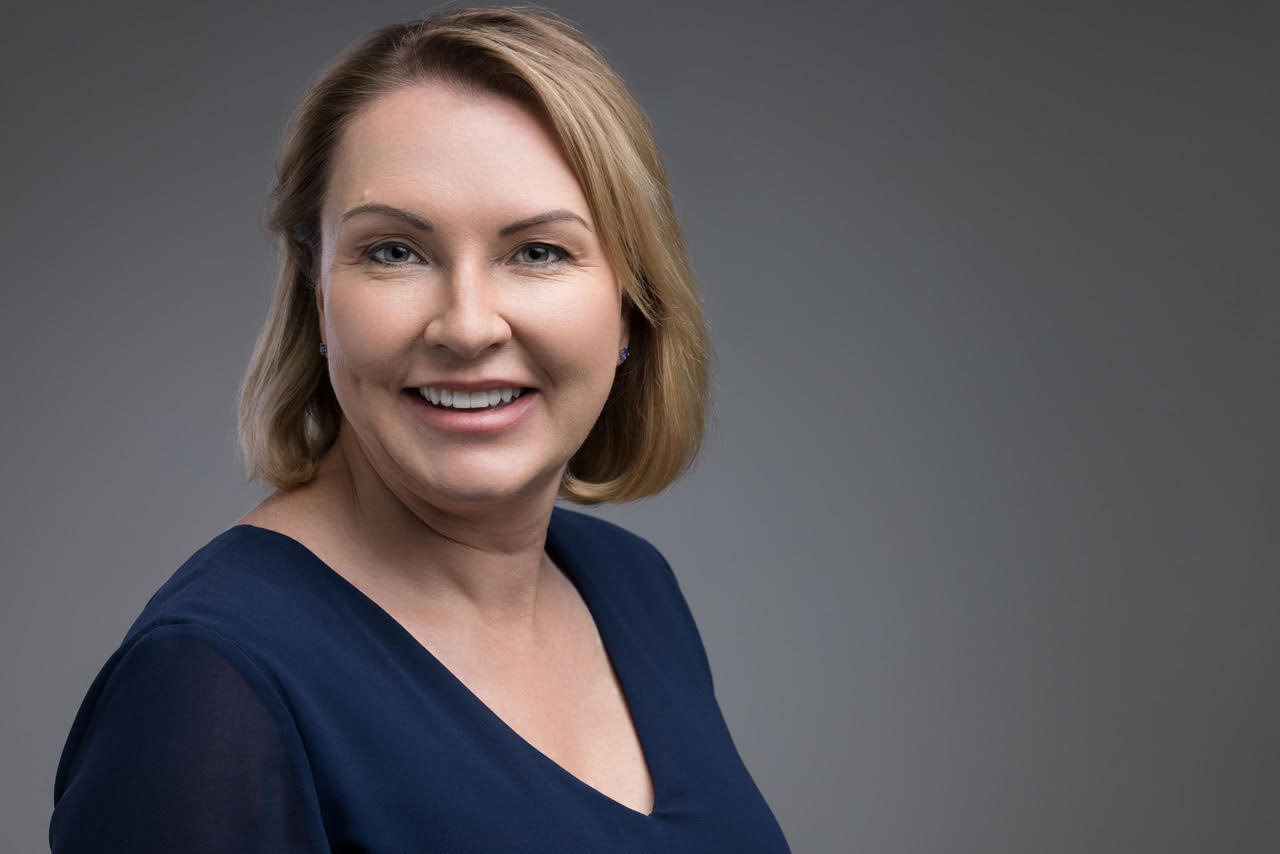
By Linda Saunders
We will be the last generation to work with all-human workforces. This is not a provocative soundbite but a statement of fact, one that signals a fundamental shift in how organisations operate and what leadership now demands. The challenge facing today’s leaders is not simply adopting new technology but architecting an entirely new operating model where humans and autonomous AI agents work in concert.
According to Salesforce 2025 CEO research, 99% of CEOs say they are prepared to integrate digital labor into their business, yet only 51% feel fully prepared to do so. This gap between awareness and readiness reveals the central tension of this moment: we recognise the transformation ahead but lack established frameworks for navigating it. The question is no longer whether AI agents will reshape work, but whether leaders can develop the new capabilities required to direct this dual workforce effectively.
The scale of change is already visible in the data. According to the latest CIO trends, AI implementation has surged 282% year over year, jumping from 11% to 42% of organisations deploying AI at scale. Meanwhile, the IDC estimates that digital labour will generate a global economic impact of $13 trillion by 2030, with their research suggesting that agentic AI tools could enhance productivity by taking on the equivalent of almost 23% of a full-time employee’s weekly workload.
With the majority of CEOs acknowledging that digital labor will transform their company structure entirely, and that implementing agents is critical for competing in today’s economic climate, the reality is that transformation is not coming, it’s already here, and it requires a fundamental change to the way we approach leadership.
The Director of the Dual Workforce
Traditional management models, built on hierarchies of human workers executing tasks under supervision, were designed for a different era. What is needed now might be called the Director of the dual workforce, a leader whose mandate is not to execute every task but to architect and oversee effective collaboration between human teams and autonomous digital labor. This role is governed by five core principles that define how AI agents should be structured, deployed and optimised within organisations.
Structure forms the foundation. Just as organisational charts define human roles and reporting lines, leaders must design clear frameworks for AI agents, defining their scope, establishing mandates and setting boundaries for their operation. This is particularly challenging given that the average enterprise uses 897 applications, only 29% of which are connected. Leaders must create coherent structures within fragmented technology landscapes as a strong data foundation is the most critical factor for successful AI implementation. Without proper structure, agents risk operating in silos or creating new inefficiencies rather than resolving existing ones.
Oversight translates structure into accountability. Leaders must establish clear performance metrics and conduct regular reviews of their digital workforce, applying the same rigour they bring to managing human teams. This becomes essential as organisations scale beyond pilot projects and we’ve seen a significant increase in companies moving from pilot to production, indicating that the shift from experimentation to operational deployment is accelerating. It’s also clear that structured approaches to agent deployment can deliver return on investment substantially faster than do-it-yourself methods whilst reducing costs, but only when proper oversight mechanisms are in place.
To ensure agents learn from trusted data and behave as intended before deployment, training and testing is required. Leaders bear responsibility for curating the knowledge base agents access and rigorously testing their behaviour before release. This addresses a critical challenge: leaders believe their most valuable insights are trapped in roughly 19% of company data that remains siloed. The quality of training directly impacts performance and properly trained agents can achieve 75% higher accuracy than those deployed without rigorous preparation.
Additionally, strategy determines where and how to deploy agent resources for competitive advantage. This requires identifying high-value, repetitive or complex processes where AI augmentation drives meaningful impact. Early adoption patterns reveal clear trends: according to the Salesforce Agentic Enterprise Index tracking the first half of 2025, organisations saw a 119% increase in agents created, with top use cases spanning sales, service and internal business operations. The same research shows employees are engaging with AI agents 65% more frequently, and conversations are running 35% longer, suggesting that strategic deployment is finding genuine utility rather than novelty value.
The critical role of observability
The fifth principle, to observe and track, has emerged as perhaps the most critical enabler for scaling AI deployments safely. This requires real-time visibility into agent behaviour and performance, creating transparency that builds trust and enables rapid optimisation.
Given the surge in AI implementation, leaders need unified views of their AI operations to scale securely. Success hinges on seamless integration into core systems rather than isolated projects, and agentic AI demands new skills, with the top three in demand being leadership, storytelling and change management. The ability to observe and track agent performance is what makes this integration possible, allowing leaders to identify issues quickly, demonstrate accountability and make informed decisions about scaling.
The shift towards dual workforce management is already reshaping executive priorities and relationships. CIOs now partner more closely with CEOs than any other C-suite peer, reflecting their changing and central role in technology-driven strategy. Meanwhile, recent CHRO research found that 80% of Chief Human Resources Officers believe that within five years, most workforces will combine humans and AI agents, with expected productivity gains of 30% and labour cost reductions of 19%. The financial perspective has also clearly shifted dramatically, with CFOs moving away from cautious experimentation toward actively integrating AI agents into how they assess value, measure return on investment, and define broader business outcomes.
Leading the transition
The current generation of leaders are the crucial architects who must design and lead this transition. The role of director of the dual workforce is not aspirational but necessary, grounded in principles that govern effective agent deployment. Success requires moving beyond viewing AI as a technical initiative to understanding it as an organisational transformation that touches every aspect of operations, from workflow design to performance management to strategic planning.
This transformation also demands new capabilities from leaders themselves. The skills that defined effective management in all-human workforces remain important but are no longer sufficient. Leaders must develop fluency in understanding agent capabilities and limitations, learn to design workflows that optimally divide labor between humans and machines, and cultivate the ability to measure and optimise performance across both types of workers. They must also navigate the human dimensions of this transition, helping employees understand how their roles evolve, ensuring that the benefits of productivity gains are distributed fairly, and maintaining organisational cultures that value human judgement and creativity even as routine tasks migrate to digital labor.
The responsibility to direct what comes next, to architect systems where human creativity, judgement and relationship-building combine with the scalability, consistency and analytical power of AI agents, rests with today’s leaders. The organisations that thrive will be those whose directors embrace this mandate, developing the structures, oversight mechanisms, training protocols, strategic frameworks and observability systems that allow dual workforces to deliver on their considerable promise.
Feature/OPED
Energy Transition: Will Nigeria Go Green Only To Go Broke?
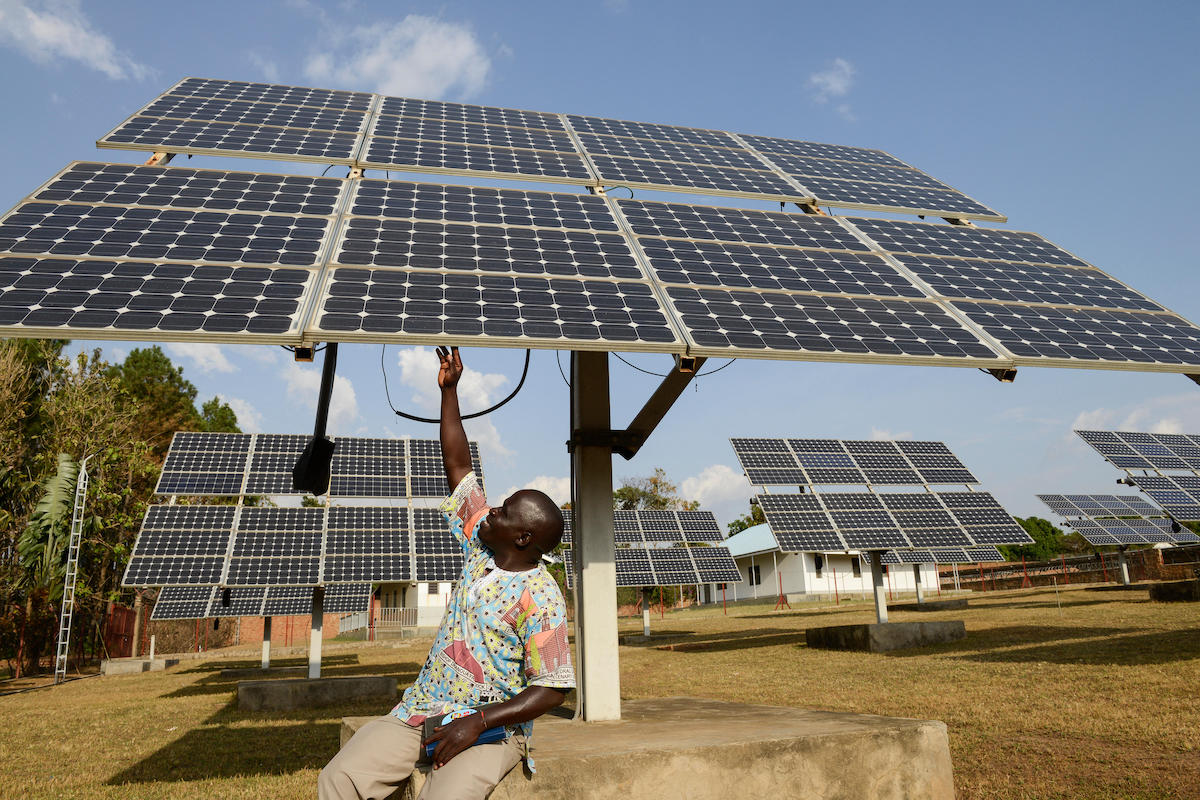
By Isah Kamisu Madachi
Nigeria has been preparing for a sustainable future beyond oil for years. At COP26 in the UK, the country announced its commitment to carbon neutrality by 2060. Shortly after the event, the Energy Transition Plan (ETP) was unveiled, the Climate Change Act 2021 was passed and signed into law, and an Energy Transition Office was created for the implementations. These were impressive efforts, and they truly speak highly of the seriousness of the federal government. However, beyond climate change stress, there’s an angle to look at this issue, because in practice, an important question in this conversation that needs to be answered is: how exactly will Nigeria’s economy be when oil finally stops paying the bills?
For decades, oil has been the backbone of public finance in Nigeria. It funds budgets, stabilises foreign exchange, supports states through monthly FAAC allocations, and quietly props up the naira. Even when production falls or prices fluctuate, the optimism has always been that oil will somehow carry Nigeria through the storms. It is even boldly acknowledged in the available policy document of the energy transition plan that global fossil fuel demand will decline. But it does not fully confront what that decline means for a country of roughly 230 million people whose economy is still largely structured around oil dollars.
Energy transition is often discussed from the angle of the emissions issue alone. However, for Nigeria, it is first an economic survival issue. Evidence already confirms that oil now contributes less to GDP than it used to, but it remains central to government revenue and foreign exchange earnings. When oil revenues drop, the effects are felt in budget shortfalls, rising debt, currency pressure, and inflation. Nigerians experienced this reality during periods of oil price crashes, from 2014 to the pandemic shock.
The Energy Transition Plan promises to lift 100 million Nigerians out of poverty, expand energy access, preserve jobs, and lead a fair transition in Africa. These are necessary goals for a future beyond fossil fuels. But this bold ambition alone does not replace revenue. If oil earnings shrink faster than alternative sources grow, the transition risks deepening fiscal stress rather than easing it. Without a clear post-oil revenue strategy tied directly to the transition, Nigeria may end up cleaner with the net-zero goals achieved, but poorer.
Jobs need to be considered, too. The plan recognises that employment in the oil sector will decline over time. What should be taken into consideration is where large-scale employment will come from. Renewable energy, of course, creates jobs, but not automatically, and not at the scale oil-related value chains once supported, unless deliberately designed to do so. Solar panels assembled abroad and imported into Nigeria will hardly replace lost oil jobs. Local manufacturing, large-scale skills development, and industrial policy are what make the difference, yet these remain weak links in Nigeria’s transition conversation.
The same problem is glaringly present in public finance. States that depend heavily on oil-derived allocations are already struggling to pay salaries, though with improvement after fuel subsidy removal. A future with less oil revenue will only worsen this unless states are supported to proactively build formidably productive local economies. Energy transition, if disconnected from economic diversification, could unintentionally widen inequality between regions and states and also exacerbate dependence on internal and external borrowing.
There is also the foreign exchange question. Oil export is still Nigeria’s main source of dollars. As global demand shifts and revenues decline, pressure on the naira will likely intensify unless non-oil exports rise in a dramatically meaningful way. However, Nigeria’s non-oil export base remains very narrow. Agriculture, solid minerals, manufacturing, and services are often mentioned, but rarely aligned with the Energy Transition Plan in a concrete and measurable way.
The core issue here is not about Nigeria wanting to transition, but that it wants to transition without rethinking how the economy earns, spends, and survives. Clean energy will not automatically fix public finance, stabilise the currency, or replace lost oil income and jobs. Those outcomes require deliberate and strategic economic choices that go beyond power generation and meeting emissions targets. Otherwise, the country will be walking into a future where oil is no longer dependable, yet nothing else has been built strongly enough to pay the bills as oil did.
Isah Kamisu Madachi is a policy analyst and development practitioner. He writes from Abuja and can be reached via [email protected]
Feature/OPED
Why Access Champions Africa’s Biggest Race
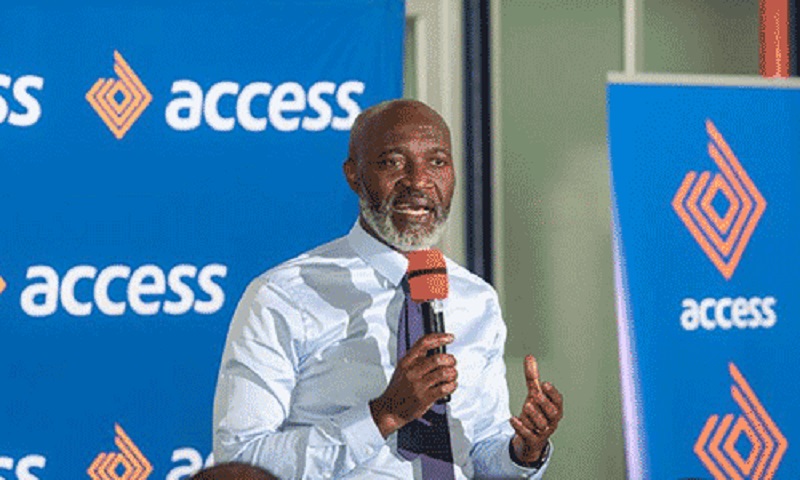
On a particular Saturday each February, before dawn breaks over Lagos and thousands of participants prepare for the event, the city is filled with an unmistakable sense of anticipation. Roads typically bustling with traffic become thoroughfares devoted to new possibilities. Whether it is first-time runners adjusting their bibs or elite athletes focusing on the challenge ahead, a recurring question arises in both public discourse and executive meetings: What motivates Access to consistently support Africa’s largest road race year after year?
The response does not lie merely within sponsorship objectives or marketing strategies. Rather, it emanates from a philosophy of leadership, one that recognises institutions as interconnected with society, measuring true success by purpose, people, and enduring social impact, not solely by financial outcomes.
For Access, the Lagos City Marathon is a statement of belief in Africa’s potential, a commitment to collective progress, and a powerful reflection of the values that guide how we build businesses and engage with communities across the continent.
Marathon as Metaphor for Africa’s Journey
A marathon is not won in the first kilometre. It demands patience, resilience, discipline, and an unshakable belief in the finish line, even when it feels impossibly far away. These qualities mirror Africa’s own development journey and the realities of building enduring institutions on the continent.
Access sees the marathon as a living metaphor for what it takes to create sustainable impact. Growth is rarely linear. Progress often comes with setbacks. But those who stay the course, who invest consistently, and who keep moving forward ultimately create lasting change. This philosophy shapes how we approach banking, partnerships, innovation, and leadership.
Supporting Africa’s biggest road race is therefore not incidental. It reinforces the idea that success, whether personal, corporate, or national, is built through long-term commitment rather than short-term wins.
People at the Centre of Progress
What makes the Lagos City Marathon truly special is its inclusivity. On race day, the streets belong to everyone: professionals running for personal bests, young people discovering the joy of movement, families cheering from the sidelines, and communities coming together in shared celebration.
This diversity reflects Access’s people-first philosophy, believing that progress is most powerful when it is inclusive, when platforms are designed to welcome participation rather than privilege exclusivity. By championing the marathon, we invest in a space where people from all walks of life are united by a common goal: to push beyond perceived limits.
Leadership Beyond Profit
Today’s business environment demands more from corporate leaders. Stakeholders increasingly expect institutions to contribute meaningfully to society, not as an afterthought, but as an integral part of strategy. Access embraces this responsibility.
Championing the Lagos City Marathon is one of the ways leadership is projected from Access. It is an opportunity to demonstrate what values-driven leadership looks like in action. The race promotes physical and mental wellness, encourages healthy lifestyles, and reinforces the importance of balance,lessons that are as relevant in the workplace as they are on the road.
More importantly, it shows that leadership is not about standing apart from society, but about standing with it. Running alongside communities. Investing in shared experiences. Creating platforms that inspire confidence and ambition, especially for young Africans who are redefining what is possible.
Economic and Social Impact That Lasts
The impact of the marathon extends far beyond race day. Each edition generates economic activity across multiple sectors, hospitality, transportation, logistics, retail, media, and tourism. Small businesses thrive, jobs are created, and local vendors benefit from increased footfall.
By attracting international runners and visitors, the marathon positions Lagos as a global destination capable of hosting world-class events. It challenges outdated narratives and showcases Nigeria’s ability to deliver excellence at scale. This visibility matters, not just for the city, but for the continent.
Building a Legacy of Inspiration
Perhaps the most enduring value of the marathon lies in inspiration. For many runners, crossing the finish line is a personal victory, proof that they can commit, endure, and succeed. For spectators, it is a powerful reminder of human potential and collective spirit.
These moments matter. They shape mindsets. They encourage people to set bigger goals, whether in health, career, or community. They reinforce the belief that with the right support and determination, progress is possible.
Access champions this race because of the belief that Africa deserves platforms that inspire millions to move, dream, and achieve more.
Leading the Long Race Together
Leadership, like a marathon, is not a sprint. It requires vision, endurance, and the willingness to keep going even when results are not immediate. Access is committed to running this long race with Africa, investing in people, institutions, and platforms that drive sustainable growth.
As runners take their marks every February, we are reminded that progress is built one step at a time. By championing Africa’s biggest road race, Access shows its belief in collective effort, long-term impact, and the power of leadership that moves with society, not ahead of it, and never apart from it.Because when Africa runs, we all move forward.
-

 Feature/OPED6 years ago
Feature/OPED6 years agoDavos was Different this year
-
Travel/Tourism9 years ago
Lagos Seals Western Lodge Hotel In Ikorodu
-

 Showbiz3 years ago
Showbiz3 years agoEstranged Lover Releases Videos of Empress Njamah Bathing
-

 Banking8 years ago
Banking8 years agoSort Codes of GTBank Branches in Nigeria
-

 Economy3 years ago
Economy3 years agoSubsidy Removal: CNG at N130 Per Litre Cheaper Than Petrol—IPMAN
-

 Banking3 years ago
Banking3 years agoSort Codes of UBA Branches in Nigeria
-

 Banking3 years ago
Banking3 years agoFirst Bank Announces Planned Downtime
-

 Sports3 years ago
Sports3 years agoHighest Paid Nigerian Footballer – How Much Do Nigerian Footballers Earn


